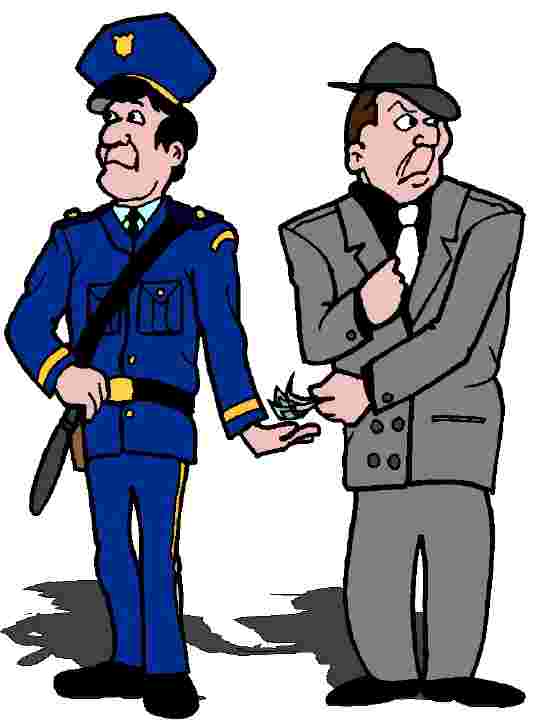 Back in March the FBI and the United States Attorney announced the guilty plea of a Baltimore City Cop to numerous felony charges. The guilty plea, while not shocking to those of us familiar with big city law enforcement, landed the Baltimore Police Department in national news headlines. As a criminal defense law firm, we hear stories all the time about police misconduct and corruption. But theses stories rarely reach the public’s ears because the incidents often end up being a cop’s word against a criminal defendant’s. But it certain cases, usually when the corrupt cops become too brash and greedy, they are caught in the act and plastered on newspapers and television. These stories offer little or no vindication for those that have been wronged by police, but it is nice to be reminded once in a while that nobody is above the law. The 36 year old city cop who plead guilty to drug conspiracy, and possession of a firearm in furtherance of a drug trafficking crime back in March is no exception.
Back in March the FBI and the United States Attorney announced the guilty plea of a Baltimore City Cop to numerous felony charges. The guilty plea, while not shocking to those of us familiar with big city law enforcement, landed the Baltimore Police Department in national news headlines. As a criminal defense law firm, we hear stories all the time about police misconduct and corruption. But theses stories rarely reach the public’s ears because the incidents often end up being a cop’s word against a criminal defendant’s. But it certain cases, usually when the corrupt cops become too brash and greedy, they are caught in the act and plastered on newspapers and television. These stories offer little or no vindication for those that have been wronged by police, but it is nice to be reminded once in a while that nobody is above the law. The 36 year old city cop who plead guilty to drug conspiracy, and possession of a firearm in furtherance of a drug trafficking crime back in March is no exception.
Continue reading →
Articles Posted in Police Misconduct
Baltimore Cop Suspended For Abuse
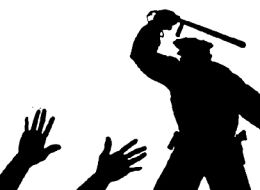 The Baltimore City Police Department has announced that one of their own has been suspended with pay and is currently under investigation for excessive use of force during an arrest. The incident began when a 14-year-old boy was spotted driving a stolen car. Officers of the city police force’s auto theft unit got wind of the whereabouts of the stolen vehicle being operated by the unlicensed driver and began their pursuit. Just minutes into the chase the inexperienced driver lost control of the car and went head on into a concrete curb, which briefly sent the vehicle airborne. The car then crashed into another parked vehicle in a commercial lot and came to its final stop. Seconds later multiple police cars arrived on scene, and with guns drawn pulled the juvenile out of the heavily damaged vehicle. As the boy was pulled out of the vehicle and surrounded by close to ten police officers, another officer ran up and appeared to strike the boy after he had been detained. Seconds later the same officer appeared to stand over and strike the boy once again. The only reason that this information has come to light is the fact that the entire incident was caught on video by a news helicopter. The helicopter began following the stolen car before it ran a curb and went crashing into a vehicle. The helicopter then stopped overhead and zoomed in on the boy being pulled out of the car.
The Baltimore City Police Department has announced that one of their own has been suspended with pay and is currently under investigation for excessive use of force during an arrest. The incident began when a 14-year-old boy was spotted driving a stolen car. Officers of the city police force’s auto theft unit got wind of the whereabouts of the stolen vehicle being operated by the unlicensed driver and began their pursuit. Just minutes into the chase the inexperienced driver lost control of the car and went head on into a concrete curb, which briefly sent the vehicle airborne. The car then crashed into another parked vehicle in a commercial lot and came to its final stop. Seconds later multiple police cars arrived on scene, and with guns drawn pulled the juvenile out of the heavily damaged vehicle. As the boy was pulled out of the vehicle and surrounded by close to ten police officers, another officer ran up and appeared to strike the boy after he had been detained. Seconds later the same officer appeared to stand over and strike the boy once again. The only reason that this information has come to light is the fact that the entire incident was caught on video by a news helicopter. The helicopter began following the stolen car before it ran a curb and went crashing into a vehicle. The helicopter then stopped overhead and zoomed in on the boy being pulled out of the car.
Continue reading →
Another Baltimore Police Officer Faces Federal Charges
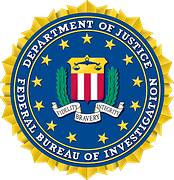 Just two months ago the Blog posted an article about a police officer that was indicted on federal drug conspiracy and robbery charges. That particular officer, a 36-year-old man, will learn his fate at a June 11th sentencing hearing in federal court, and the embarrassing stain of his arrest and prosecution is still fresh on the minds of top cops at the Baltimore City Police Department. But Maryland’s largest police department now faces yet another scandal involving a crooked officer. The United States Attorney’s Office recently announced the filing of criminal charges and the subsequent arrest of a 25-year-old female police officer that hails from Pikesville. The criminal complaint alleges that the woman stood watch in her marked patrol car while a supposed drug dealer completed a heroin sale at a Baltimore area shopping center. The woman also allegedly provided the supposed drug dealer with information about the identity of police informants, which she obtained from department databases. Unfortunately for the soon to be ex-cop, the supposed drug dealer was actually an informant working with the FBI, and the entire transaction is now the basis for a variety of serious felony charges filed against her.
Just two months ago the Blog posted an article about a police officer that was indicted on federal drug conspiracy and robbery charges. That particular officer, a 36-year-old man, will learn his fate at a June 11th sentencing hearing in federal court, and the embarrassing stain of his arrest and prosecution is still fresh on the minds of top cops at the Baltimore City Police Department. But Maryland’s largest police department now faces yet another scandal involving a crooked officer. The United States Attorney’s Office recently announced the filing of criminal charges and the subsequent arrest of a 25-year-old female police officer that hails from Pikesville. The criminal complaint alleges that the woman stood watch in her marked patrol car while a supposed drug dealer completed a heroin sale at a Baltimore area shopping center. The woman also allegedly provided the supposed drug dealer with information about the identity of police informants, which she obtained from department databases. Unfortunately for the soon to be ex-cop, the supposed drug dealer was actually an informant working with the FBI, and the entire transaction is now the basis for a variety of serious felony charges filed against her.
Continue reading →
DOJ Reaffirms Citizens’s Right To Photograph And Record On Duty Police
About a year ago the Blog posted an article addressing the issue of whether it is legal to video record a police officer engaging in his or her duties. While there is clearly no state or federal law prohibiting this protected First Amendment behavior, the answer is not so simple. In other words, despite no specific law prohibiting the act of filming a cop, it’s not legal if the police can just arrest you for disorderly conduct or some other petty offense. A year ago, the Maryland Attorney General issued an opinion advising police departments around the state that the public has the right to video record its officers. The Department of Justice, or DOJ, also filed an 11-page letter with the court in a Baltimore City civil rights lawsuit. The lawsuit was based on a 2010 incident at the Preakness where a man’s phone was confiscated after he was seen recording the police make an arrest. This DOJ letter pointed out that the Baltimore Police Department’s policies do not adequately protect a citizen’s right to record cops. Recently, the DOJ has once again reiterated its stance on this issue by filing another letter with the United States District Court in Maryland.
Continue reading →
Baltimore Police Officer Pleads Guilty To Drug Dealing
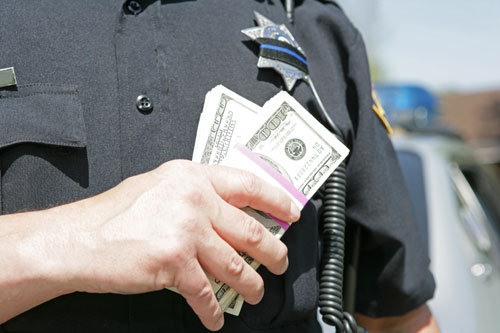 The FBI and the United States Attorney for the District of Maryland recently announced that a 36 year-old Baltimore Police officer has pleaded guilty to multiple drug and gun felonies. The investigation began in early 2012 when the feds received information from an anonymous source that the crooked cop was trafficking in stolen property. As a result of the tip and other corroborating information, feds secured a warrant to wiretap the officer’s cellphone. Through the wiretap law enforcement learned that the officer was selling stolen iPhones, iPads, and other electronics, some of which were confiscated during arrests and never submitted into evidence. Federal investigators also became aware of a new development, that the officer was involved in a more sophisticated and organized criminal scheme with a street level drug dealer.
The FBI and the United States Attorney for the District of Maryland recently announced that a 36 year-old Baltimore Police officer has pleaded guilty to multiple drug and gun felonies. The investigation began in early 2012 when the feds received information from an anonymous source that the crooked cop was trafficking in stolen property. As a result of the tip and other corroborating information, feds secured a warrant to wiretap the officer’s cellphone. Through the wiretap law enforcement learned that the officer was selling stolen iPhones, iPads, and other electronics, some of which were confiscated during arrests and never submitted into evidence. Federal investigators also became aware of a new development, that the officer was involved in a more sophisticated and organized criminal scheme with a street level drug dealer.
The drug dealer was actually a registered confidential informant with the Baltimore Police Department. A confidential informant is basically a civilian who has agreed to provide information to law enforcement and to participate in undercover investigations in exchange for avoiding criminal prosecution him or herself. On the street confidential informants have infamously been known as snitches, and this nickname has even appeared in television shows and movies. This particular confidential informant was a known drug dealer in the Northwest Baltimore area where the officer patrolled, and at some point the two entered into a business agreement. The officer would provide the drug dealer with information on a daily basis when and where it was safe to sell drugs without police interference. The officer was also accused of doctoring police reports by redacting the drug dealer’s name and eliminating his involvement in crimes. In exchange for this protection, the drug dealer would provide the officer with information about other criminal activity, which the officer used to make arrests.
Continue reading →
When Can Police Search My Home And Car?
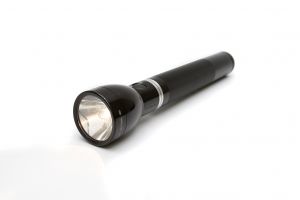 All Maryland police officers receive some sort of training in constitutional laws relating to search, seizure, and arrest. Constitutional law is by no stretch of the imagination the focus of any police academy’s training program. There is just not enough time and too little resources to put every potential police officer through a rigorous classroom curriculum on the search and seizure laws. Even if this training were available, there are no guarantees that each trainee would retain the information, and or use it in while working out in the field. This is not to blame police officers, as it is much easier to sit down and write an essay on constitutional law than it is to follow decades of case law and statutory restrictions during the heat of an arrest. Yes, it is true that some police officers intentionally conduct illegal searches and seizures, and make bad arrests, but good intentioned police officers face the daily challenge of making split decisions to protect life and property, and sometimes there is just no room for the constitution. Therefore police officers will make unlawful arrests, and execute unlawful searches and seizures, and this should be the first issue that any criminal defense lawyer should investigate in any criminal case. But this blog entry is dedicated to those people who wish to avoid ever needing a criminal defense lawyer to address an unlawful arrest. Knowing the basic search and seizure laws is not a foolproof way of avoiding an arrest. Each year thousands of drug prosecutions for substances such as marijuana and cocaine are carried out using evidence that was illegally seized. In addition, hundreds of DUI investigations are initiated after police make an illegal traffic stop. But knowing the law just may help you get out of a sticky situation, and it certainly cannot hurt.
All Maryland police officers receive some sort of training in constitutional laws relating to search, seizure, and arrest. Constitutional law is by no stretch of the imagination the focus of any police academy’s training program. There is just not enough time and too little resources to put every potential police officer through a rigorous classroom curriculum on the search and seizure laws. Even if this training were available, there are no guarantees that each trainee would retain the information, and or use it in while working out in the field. This is not to blame police officers, as it is much easier to sit down and write an essay on constitutional law than it is to follow decades of case law and statutory restrictions during the heat of an arrest. Yes, it is true that some police officers intentionally conduct illegal searches and seizures, and make bad arrests, but good intentioned police officers face the daily challenge of making split decisions to protect life and property, and sometimes there is just no room for the constitution. Therefore police officers will make unlawful arrests, and execute unlawful searches and seizures, and this should be the first issue that any criminal defense lawyer should investigate in any criminal case. But this blog entry is dedicated to those people who wish to avoid ever needing a criminal defense lawyer to address an unlawful arrest. Knowing the basic search and seizure laws is not a foolproof way of avoiding an arrest. Each year thousands of drug prosecutions for substances such as marijuana and cocaine are carried out using evidence that was illegally seized. In addition, hundreds of DUI investigations are initiated after police make an illegal traffic stop. But knowing the law just may help you get out of a sticky situation, and it certainly cannot hurt.
Continue reading →
Baltimore City Police Officer Charged With Assault
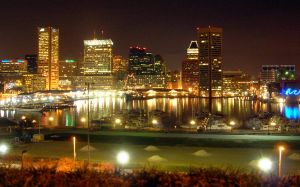 A Baltimore City police officer was recently charged with assault after being involved in an altercation in Harford County, Maryland. The exact facts surrounding the altercation are in dispute, but the Baltimore police officer certainly has an interesting explanation for how he became involved in the assault. The criminal charging document alleges that the 10 year Baltimore police veteran, who was off duty at the time, approached a parked vehicle with two occupants seated inside. The police officer was apparently yelling at the occupants to stop dealing drugs, and approached the car in a threatening manner despite not seeing any actual drug transaction taking place.
A Baltimore City police officer was recently charged with assault after being involved in an altercation in Harford County, Maryland. The exact facts surrounding the altercation are in dispute, but the Baltimore police officer certainly has an interesting explanation for how he became involved in the assault. The criminal charging document alleges that the 10 year Baltimore police veteran, who was off duty at the time, approached a parked vehicle with two occupants seated inside. The police officer was apparently yelling at the occupants to stop dealing drugs, and approached the car in a threatening manner despite not seeing any actual drug transaction taking place.
The charging document goes on to say that the off duty Baltimore cop pulled one of the occupants, a Bel Air, Maryland man, out of the car and committed the assault by slamming him to the ground. The Baltimore officer, who has not hired a criminal lawyer as of yet, then furthered the assault by allegedly pulling out his police semi automatic Glock 22 and pointing the gun in the face of the victim. While the Baltimore officer had his police issued pistol pointed at the victim, he was allegedly still yelling about the drug transaction that may or may not have occurred. There were witnesses to the entire incident, and one witness apparently called the Harford County police, which arrived on scene in minutes.
Continue reading →
Can You Video Record A Police Officer Making An Arrest In Maryland?
Video recording police officers making arrests, writing traffic citations, or even interacting with citizens in non criminal settings has been a hot topic in the last few years throughout Maryland, and especially in Baltimore City. Many police departments around the country have dashboard cameras which record traffic stops, DUI arrests, and even automobile searches for weapons and drugs such as marijuana and cocaine. However, in Maryland most police departments do not record their officers’ interactions with civilians, and even with automatic dash dams the majority of police and civilian interactions go unrecorded. As a result, police officers have little checks on their power and can abuse their authority when interacting with civilians. In recent years though the public has fought back with an unlikely weapon, using cell phones to keep police officers under raps.
Almost every cell phone sold in America has a camera, and citizens fed up with police abuse of power are using these cameras as a check on police behavior. Countless abusive police interactions have shown up on YouTube, and an abundance of civil lawsuits have been filed by lawyers against police departments. Not surprisingly, police officers in Baltimore City and other jurisdictions in Maryland have not taken a liking to this new trend. There have been various documented incidents of police officers becoming angry upon seeing that they are being recorded by civilians, and some of these incidents end up in an illegal arrest not for committing a crime, but for simply documenting an officers actions. This issue has garnered national media attention and in the past year a civil lawsuit against the Baltimore City police caught the eye of the United States Department of Justice or DOJ.
Continue reading →
D.C. Agrees To Settle False DUI Conviction Lawsuits
 The city of Washington D.C. has agreed to settle four civil lawsuits over false DUI convictions. The civil claims for damages were filed back in 2010 by 4 men whose DUI convictions were tainted by inaccurate breath alcohol testing machines. The city has agreed to pay a total of $20,000 plus attorney’s fees to the 4 plaintiffs. Two of the plaintiffs will receive $5000, and the other two will receive $8,000 and $2,000 respectively. The lawsuit alleged that city officials and police were aware that the breath alcohol testing machines were flawed, but continued to use them in criminal DUI prosecutions. As early as 2008 an independent expert informed the city that their breath alcohol machines were not providing accurate results for a variety of reasons. The machines used in D.C. are similar to the Intoxilyzer machines used in Maryland, and require regular maintenance and calibration. D.C. officials failed to do either, but that does not even tell half the story of the city’s dishonest and fraudulent behavior.
The city of Washington D.C. has agreed to settle four civil lawsuits over false DUI convictions. The civil claims for damages were filed back in 2010 by 4 men whose DUI convictions were tainted by inaccurate breath alcohol testing machines. The city has agreed to pay a total of $20,000 plus attorney’s fees to the 4 plaintiffs. Two of the plaintiffs will receive $5000, and the other two will receive $8,000 and $2,000 respectively. The lawsuit alleged that city officials and police were aware that the breath alcohol testing machines were flawed, but continued to use them in criminal DUI prosecutions. As early as 2008 an independent expert informed the city that their breath alcohol machines were not providing accurate results for a variety of reasons. The machines used in D.C. are similar to the Intoxilyzer machines used in Maryland, and require regular maintenance and calibration. D.C. officials failed to do either, but that does not even tell half the story of the city’s dishonest and fraudulent behavior.
Not only did Washington D.C. officials choose to ignore their independent expert’s advice to maintain and calibrate the machines, they also continued to proffer to the courts that the machines had been tested. Thus trained breath technicians at the Attorney General’s office deliberately mislead the court during criminal DUI prosecutions. City officials and the Attorney General also failed to disclose their knowledge of the Intoxilyler’s inaccuracy to the defendants and their criminal defense lawyers via the city prosecutor’s office. It is unknown whether prosecutors were aware of the Intoxilyzer inaccuracies, but if they were and failed to disclose this exculpatory “Brady” evidence, then the city prosecutors would have committed an egregious ethical violation. In summary, the city neglected to maintain their alcohol testing machines after being told to do so, failed to disclose their knowledge of the machine’s inaccuracies, and then willfully and intentionally lied about both. Even more disturbing is the direct effect that this dishonest behavior had on the named DUI defendants.
Continue reading →
Baltimore Police Not Meeting Terms of False Arrest Settlement
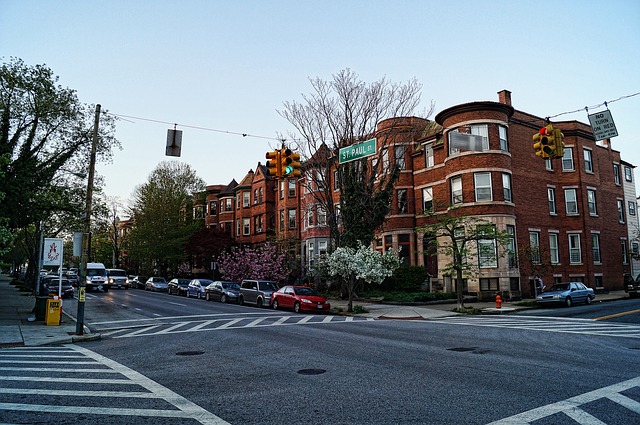 The Baltimore Police department has not been meeting the terms of a settlement regarding illegal arrests according to the ACLU. The settlement arose out of a 2006 lawsuit, which alleged a pattern of thousands of unlawful arrests for various non violent, low level crimes such as drug possession, trespassing, and loitering in Baltimore City. The civil lawsuit was filed by the ACLU on behalf of 14 people that were arrested in Baltimore without probable cause. The lawsuit stated that due to Baltimore City’s zero tolerance policy, Baltimore police officers began unlawfully arresting people on the street at an alarming rate.
The Baltimore Police department has not been meeting the terms of a settlement regarding illegal arrests according to the ACLU. The settlement arose out of a 2006 lawsuit, which alleged a pattern of thousands of unlawful arrests for various non violent, low level crimes such as drug possession, trespassing, and loitering in Baltimore City. The civil lawsuit was filed by the ACLU on behalf of 14 people that were arrested in Baltimore without probable cause. The lawsuit stated that due to Baltimore City’s zero tolerance policy, Baltimore police officers began unlawfully arresting people on the street at an alarming rate.
In 2005, after the Mayor O’Malley enacted the zero tolerance policy, Baltimore police made nearly 110,000 arrests. A majority of these arrests were for minor offenses such as trespassing, loitering, or drug possession. Baltimore prosecuting lawyers never filed charges in many of these criminal cases because the Baltimore police officers simply had no justification for making the arrests in the first place. To make matters worse, Baltimore police officers frequently neglected to indicate their observations used to determine probable cause in these arrests. The most important function of an arrest report is indicating probable cause for an arrest so that a first appearance judge can determine a bond, or if the arrestee is entitled to release. Including probable cause observations in an arrest report is a basic law enforcement skill, which all police officers learn in the police academy.
Continue reading →
 Criminal Defense Lawyer Blog
Criminal Defense Lawyer Blog

